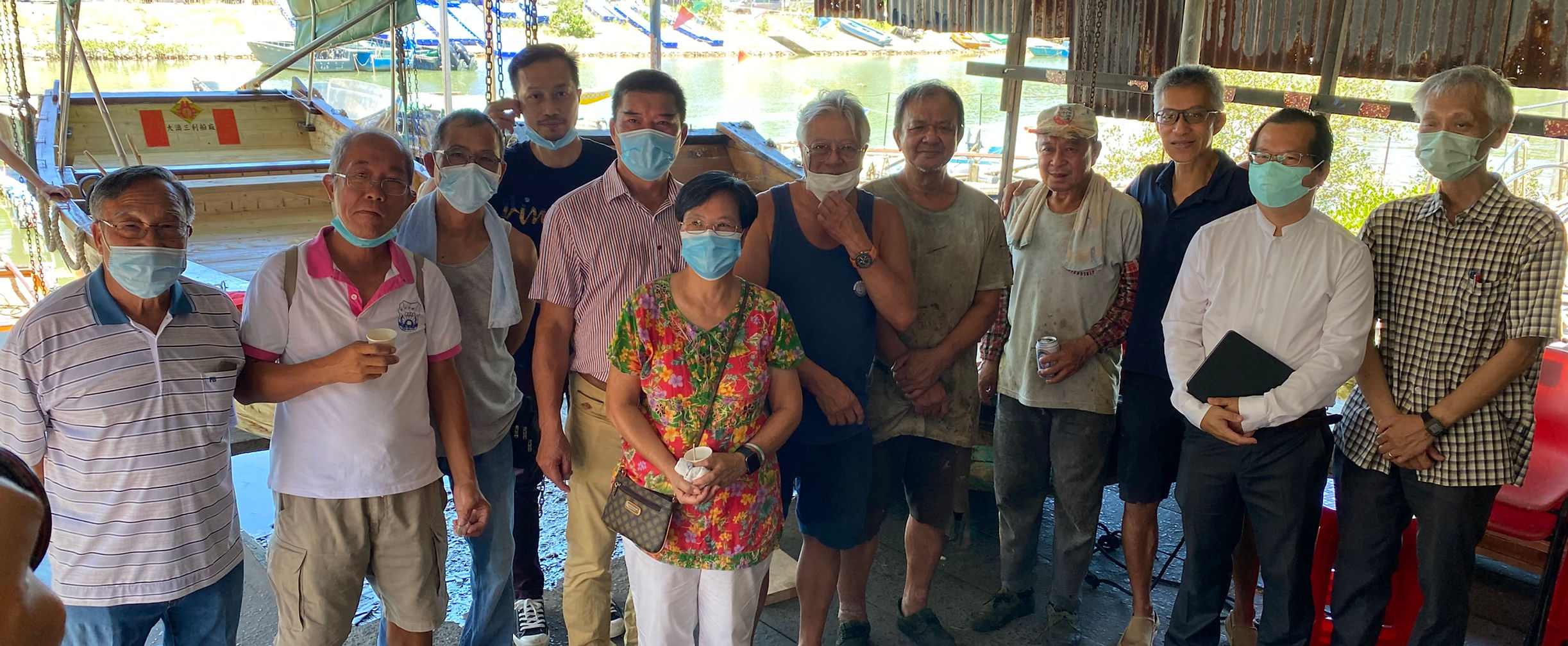
鹹水歌
Songs of Fisherman
鹹水歌
鹹水歌是漁民的傳統歌謠,內容涵蓋生活、工作、親情和愛情,反映了漁民的日常社交、情感抒發以及傳統習俗儀式等生活文化。漁民會在河涌上一邊搖櫓,一邊嘆鹹水歌。 以下影片節錄由玲姐(樊艷玲)嘆詠一些與搖櫓有關的鹹水歌
This is a traditional fishermen’s folk song, covering stories of life, work, family and love. It serves as a cultural expression for fishermen’s social interactions, expressing emotions and customary rituals. Fishermen would often sing while rowing sampans. The following video excerpt features Auntie Fan (Fan Yim Ling) singing some songs of fisherman related to rowing.


舢舨文化
舢舨文化
Traditional Sampan Culture
到了八十年代,傳統木舢舨逐步被造價平,保養容易的玻璃纖維船取代。木舢舨在河涌上消失,意味著木舢舨的工藝及漁民與木舢舨之間的回憶也漸漸消失。昔日的棚屋各自獨立於水上,漁民日常生活依靠舢舨代步,他們自小已懂得搖櫓,搖櫓之於漁民就如我們步行般輕鬆自如。
By the 1980s, wooden sampans were gradually replaced by fiberglass boats that were cheaper and easier to maintain. As wooden sampans disappeared from Tai O, the associated craftsmanship, along with the memories of fishermen and sampans, also began to fade away. In the past, stilt houses stood independently on the water, and fishermen relied on sampans for daily transportation. They have learned how to row from a very young age.

昔日大澳
Tales of Tai O
現在大多數舢舨已安裝了摩打,年輕一代無需學習搖櫓了。對大澳老漁民來說,搖櫓像是刻在骨子裏的自然反應;但對漁民子弟來說,搖櫓卻十分陌生。影片中,幾位不同年代的大澳人將昔日的搖故事娓娓道來,如何從搖櫓舢舨帶出對自身的文化身份認同。
Nowadays, most sampans are equipped with motors, and the younger generation no longer needs to learn how to row. For the elderly fishermen, rowing is an instinctive reflex; however, it is an unnecessary skill for their offspring. In the video, Tai O people from different generations share their stories about the past, and how rowing sampans helped shape their cultural identity.


